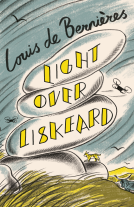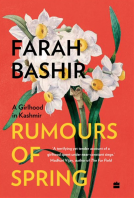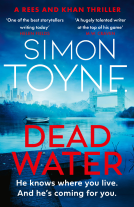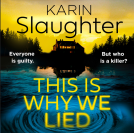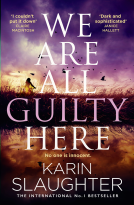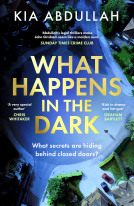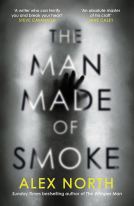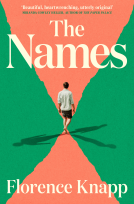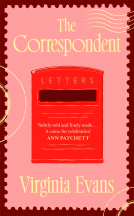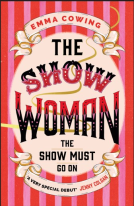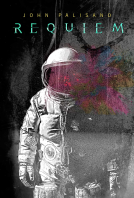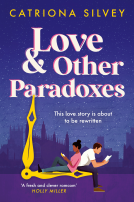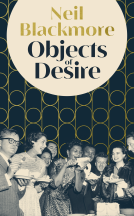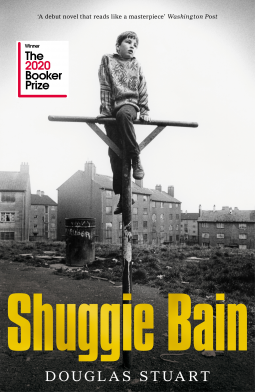
Shuggie Bain
The Million-Copy Bestseller
by Douglas Stuart
This title was previously available on NetGalley and is now archived.
Send NetGalley books directly to your Kindle or Kindle app
1
To read on a Kindle or Kindle app, please add kindle@netgalley.com as an approved email address to receive files in your Amazon account. Click here for step-by-step instructions.
2
Also find your Kindle email address within your Amazon account, and enter it here.
Pub Date 6 Aug 2020 | Archive Date 23 Mar 2021
Pan Macmillan | Picador
Talking about this book? Use #ShuggieBain #NetGalley. More hashtag tips!
Description
WINNER of the Booker Prize 2020
Shortlisted for the National Book Award for Fiction 2020
'We were bowled over by this first novel, which creates an amazingly intimate, compassionate, gripping portrait of addiction, courage and love.' – The judges of the Booker Prize.
It is 1981. Glasgow is dying and good families must grift to survive. Agnes Bain has always expected more from life. She dreams of greater things: a house with its own front door and a life bought and paid for outright (like her perfect, but false, teeth). But Agnes is abandoned by her philandering husband, and soon she and her three children find themselves trapped in a decimated mining town. As she descends deeper into drink, the children try their best to save her, yet one by one they must abandon her to save themselves. It is her son Shuggie who holds out hope the longest.
Shuggie is different. Fastidious and fussy, he shares his mother’s sense of snobbish propriety. The miners' children pick on him and adults condemn him as no’ right. But Shuggie believes that if he tries his hardest, he can be normal like the other boys and help his mother escape this hopeless place.
Douglas Stuart's Shuggie Bain lays bare the ruthlessness of poverty, the limits of love, and the hollowness of pride. A counterpart to the privileged Thatcher-era London of Alan Hollinghurst’s The Line of Beauty, it also recalls the work of Édouard Louis, Frank McCourt, and Hanya Yanagihara, a blistering debut by a brilliant writer with a powerful and important story to tell.
'Douglas Stuart has written a first novel of rare and lasting beauty.' – Observer
Advance Praise
'A boy's heartbreaking love for his mother... as intense and excruciating to read as any novel I have ever held in my hand... Set in Glasgow and its declining surrounds from 1981 to 1992, it is the story of Shuggie Bain, a gentle boy, the light of whose life is his mother, Agnes, an increasingly disruptive alcoholic... The heartbreaking futility of this, the boy’s perpetual state of anxiety and dread, is almost unbearable. Year after year, in one humiliating incident after another, the woman’s self-centeredness, desperation and degradation are displayed. It is grindingly, terribly real... The book’s evocative power arises out of the author’s talent for conjuring a place, a time, and the texture of emotion, and out of its language which is strewn with a Glaswegian argot sodden with desolation and misery... This is a hard, grim book, brilliantly written and, in the end, worth the pain which accompanies reading it.' Newsday
“The body―especially the body in pain―blazes on the pages of Shuggie Bain . . . This is the world of Shuggie Bain, a little boy growing up in Glasgow in the 1980s. And this is the world of Agnes Bain, his glamorous, calamitous mother, drinking herself ever so slowly to death. The wonder is how crazily, improbably alive it all is . . . The book would be just about unbearable were it not for the author’s astonishing capacity for love. He’s lovely, Douglas Stuart, fierce and loving and lovely. He shows us lots of monstrous behavior, but not a single monster―only damage. If he has a sharp eye for brokenness, he is even keener on the inextinguishable flicker of love that remains . . . The book leaves us gutted and marveling: Life may be short, but it takes forever.’ New York Times Book Review
“A heartbreaking story about identity, addiction, and abandonment.” TIME
“An instant classic. A novel that takes place during the Thatcher years and, in a way, defines it. A novel that explores the underbelly of Scottish society. A novel that digs through the grit and grime of 1980s Glasgow to reveal a story that is at once touching and gripping. Think D.H. Lawrence. Think James Joyce . . . A literary tour de force.” Washington Independent Review of Books
“Douglas’s sharp narrative perspective moves from character to character, depicting each internally and externally with astute grace, giving a complex understanding of the dynamics of the Bain family . . . Shuggie Bain is a master class in depicting the blinding dedications of love and the endless bounds to which people will go to feel in control, to feel better. It hopefully sets the tone for more beautifully devastating works of fiction to follow from Stuart in the future.” Columbia Journal
“Heartfelt and harrowing . . . [A] visceral, emotionally nuanced portrayal of working class Scottish life and its blazingly intimate exploration of a mother-son relationship.”―Literary Hub
“An atmospheric epic set in 1980s working-class Glasgow, Shuggie Bain, a debut novel by Douglas Stuart, focuses on the relationship between a mother and son as she battles alcoholism and he grapples with his sexuality. It’s a formidable story, lyrically told, about intimacy, family, and love.” Elle (US)
“The way Irvine Welsh’s Trainspotting carved a permanent place in our heads and hearts for the junkies of late-1980s Edinburgh, the language, imagery, and story of fashion designer Stuart’s debut novel apotheosizes the life of the Bain family of Glasgow . . . The emotional truth embodied here will crack you open. You will never forget Shuggie Bain. Scene by scene, this book is a masterpiece.”―Kirkus Review (starred review)
“Compulsively readable . . . In exquisite detail, the book describes the devastating dysfunction in Shuggie’s family, centering on his mother’s alcoholism and his father’s infidelities, which are skillfully related from a child’s viewpoint . . . As it beautifully and shockingly illustrates how Shuggie ends up alone, this novel offers a testament to the indomitable human spirit. Very highly recommended.”―Library Journal (starred review)
“Stuart’s harrowing debut follows a family ravaged by addiction in Glasgow during the Thatcher era . . . There are flashes of deep feeling that cut through the darkness . . . Will resonate with readers.” Publishers Weekly
“There’s no way to fake the life experience that forms the bedrock of Douglas Stuart’s wonderful Shuggie Bain. No way to fake the talent either. Shuggie will knock you sideways.”
Richard Russo, author of Chances Are
“Every now and then a novel comes along that feels necessary and inevitable. I’ll never forget Shuggie and Agnes or the incredibly detailed Glasgow they inhabit. This is the rare contemporary novel that reads like an instant classic. I’ll be thinking and talking about Shuggie Bain―and teaching it―for quite some time.” Garrard Conley, author of Boy Erased
“A rare and haunting ode to 1980s Glasgow and its struggling communities, Shuggie Bain tells the story of a collapsing family that is lashed together by love alone. Douglas Stuart writes with startling, searing intimacy. I fell hard for these characters; when they have nothing left, they cling maddeningly―irresistibly―to humor, pride and hope.” Chia-Chia Lin, author of The Unpassing
“Shuggie Bain is an intimate and frighteningly acute exploration of a mother-son relationship and a masterful portrait of alcoholism in Scottish working class life, rendered with old-school lyrical realism. Stuart is a writer who genuinely loves his characters and makes them unforgettable and touching even when they're at their worst. He’s also just a beautiful writer; I kept being reminded of Joyce’s Dubliners. I loved this book.” Sandra Newman, author of The Heavens
“A dark shining work. Raw, formidable, bursting with tenderness and frailty. The effect is remarkable, it will make you cry.”―Karl Geary, author of Montpelier Parade
Available Editions
| EDITION | Other Format |
| ISBN | 9781529019278 |
| PRICE | £14.99 (GBP) |
| PAGES | 448 |
Featured Reviews
 Sue P, Bookseller
Sue P, Bookseller
The scenario for 'Shuggie Bain' is harrowing - poverty, alcoholism and the disaster of Thatcherism, unemployment and pit closures, with a gritty Glasgow setting.
This isn't a cheerful read, and I wasn't initially sure that I'd stick with something so potentially depressing, and yet I was absolutely gripped by the story of Shuggie, his brother Leek, and their alcoholic mother, Agnes. From the beginning, the reader knows that the odds are stacked against the family: both Agnes and Shuggie want to 'get better' and make a fresh start - she wants to stop drinking, and he wants to be 'normal.' There can be no happy endings in this story - Agnes's brief period of sobriety is sabotaged by the potential partner who want her to show she is 'better' by taking a glass of wine. But what makes the book so compelling is the characters' refusal to succumb to self-pity and the 'poor mes.' Agnes's defiance and ability to put on her best clothes and hold her head high, despite the degradation her drinking brings, and Shuggie's (and Leek's ) love for her.
The book is beautifully written - the author knows just how much to tell, and how much to withold as we watch Agnes's steady decline. There's a real sense of time and place, too. Although I'm not usually a fan of sequels, I'd love to know what happens to Shuggie next, and am very much looking foward to reading more by Douglas Stuart.
A stunning debut from Douglas Stuart, "Shuggie Bain" is going to be massive. The novel is dark and captures the essence of '80s Glasgow perfectly; the poverty and the patter, amidst a background of political devastation. The 'Whitney Houston in wellies' section was my favourite bit and really touched my soul. Stuart masterfully employs beautifully descriptive language, amidst the harshness and heartbreak, and is a vibrant new voice in Scottish fiction.
 Emma M, Reviewer
Emma M, Reviewer
This book takes us through 1980’s Glasgow which has been hit by poverty and unemployment.
Shuggie Bain is just a young boy, when his father walks out, leaving him and his siblings with their mother, Agnes. Agnes always tries to maintain her glamorous appearance and rarely leaves the house without looking her best, but some bad choices and life's ups and downs sees her frequently reaching for a drink.
Shuggie deeply loves his mother and more often than not is the one that ends up looking after her, defending her to everyone and watches her slip further and further to alcoholism.
Agnes is the one who also understands what people mean when they say Shuggie is "no right". He's not like other boys and as we go through the book, Shuggie starts to realise his sexuality.
This book deals with harrowing themes such as alcoholism, rape, abuse and poverty and Douglas Stuart manages to deal with beautiful way.
Being from the same part of the world, I felt I knew the characters or could relate to some of the situations. This is by far a heartwarming book but there were parts of it that I found comforting and thoroughly enjoyed.
This is an amazing debut novel from Douglas Stuart and I would like to thank NetGalley, Pan MacMillan and Picador for the opportunity to read an advance copy.
Shuggie Bain is incredible. It’s warm. It’s dark and gritty. And it is a hard read (not ideal for lockdown). Beautifully written, it will slowly grab you into a mesmerising spell of prose, difficult twists and turns and characters who you root for (no matter how bad their behaviour).
This is a spectacular debut (another great pick from the Observer). I do not doubt it will go onto amazing things.
Thanks to Netgalley, Pan Macmillan and Picador for an advanced copy in consideration of an honest review.
 Ciaran S, Reviewer
Ciaran S, Reviewer
Shuggie Bain is - for me - the first essential book of the year. What could be a grim read - a young lad who doesn’t fit in grows up in poverty, dealing with, and at times caring for, his alcoholic mother - finds the glimmers of light in the darkness. At times the unrelenting misery makes it a challenging read, but, aside from the depth of the characters and their relationships, there’s a vivid descriptiveness to the language - whether the narrative that brings the squalor alive through the colour of a best coat against the dust of a slag heap, or the vernacular of Glasgow patter. Agnes is particularly well drawn, and in a sense more present than Shuggie, with her descent forming the backbone of the novel. Glasgow - or the predominantly restricted view of it Shuggie gets - is a critical character in itself,
Well worth the investment of time - it’s a rewarding read.
 Graham F, Reviewer
Graham F, Reviewer
"Her body hung off the side of the bed, and by the odd angle Shuggie could tell the drink had spun her all night like a Catherine wheel. He turned her head to the side to stop her choking on her rising boak. Then he placed the mop bucket near the bed and gently unzipped the back of her cream dress and loosened the clasp on her bra. He would have taken off her shoes, but she wasn’t wearing any, and her legs were white and stark-looking without the usual black stockings. There were new bruises on her pale thighs. Shuggie arranged three tea mugs: one with tap water to dry the cracks in her throat, one with milk to line her sour stomach, and the third with a mixture of the flat leftovers of Special Brew and stout that he had gathered from around the house and frothed together with a fork. He knew this was the one she would reach for first, the one that would stop the crying in her bones."
This book is a remarkable well executed debut by a Scottish born author, now living in New York where he works as a fashion designer.
Douglas Stuart grew up in a Glasgow housing estate (losing his mother to alcoholism at 16, and never meeting his father). In a Lit Hub article (recommending other books set in Glasgow) he effectively sets the scene for this book:
"I grew up in a house without books, which was not unusual for the time or the place. The working men who surrounded me bent steel for a living, they built fine ships, or traveled miles into the earth to hack away at coalfaces. We sons took after our fathers. We kicked things—first it was footballs, then it was each other—and as we grew, we had little time for books. We sought apprenticeships or we learned trades. We were proud, we were useful.
But the ruling conservative government cared nothing for the honest, working poor. They set about privatizing most manufacturing, removing all support for nationalized labor. In doing so Margaret Thatcher decimated the working man. Her policies swept all heavy industry from the west coast of Scotland in the span of a single generation and did it with all the disregard of a government separated by distance and several social classes. Steel, ships, coal, all gone. The men had nowhere to turn and they became chronically unemployed. They were emasculated and sent by a woman (no less) to rot away their lives into rented settees."
A theme also taken up in a recent New Yorker interview discussing a short story published there (as well as this book)
"The Glasgow I grew up in was rife with drink, drugs, and gang violence. Margaret Thatcher and her remote Tory government closed all the heavy industry in the city within a generation; ships, steel, coal—all gone. This had a terrible knock-on effect on all employment, and working families had nowhere to turn; fathers and sons were all put out of work, with no hope, and it ushered in some of the worst addiction and health crises in western Europe,"
The book is effectively two intertwined stories – an autobiographically inspired story of the Bain family (particularly the mother Agnes and her youngest son – Doug or Shuggie) over the period 1981-1992 (with Shuggie between 5 and 15); and a portrait of what was working class Glasgow in the early aftermath of what I can only really describe as the evils of Thatcherism – with (as the quotes above imply) its heavy industry male workforce becoming unemployed en masse (as collateral – possibly even deliberate - damage in Thatcher’s attempts to modernise Britain and break the power of the Unions) with poverty and addiction taking over.
Agnes (as she confesses at the rare AA meetings she manages to attend) is an alcoholic – but also a strikingly beautiful woman and a proud one (both in her speech – when she is not slurring – and her appearance – when not dishevelled by drink). When her first two children Catherine and Leck were still toddlers, she left their father and her first husband – a solid Catholic – for a reprobate (an appropriate term for a non-believing Scottish Protestant), charming, womanising taxi-driver Douglas (Shug) Bain.
For years they live with Agnes’s parents – until Shug (by now father to Shuggie) persuades Agnes they should move to a new development in the outskirts of the town – more it seems as a test of her loyalty as by now he claims to be tired of her drinking (or at least sufficiently bored with it to no longer even pretend to be conducting a serious affair with one of the dispatchers) – and he abandons her and the children there, to what turns out to be a devastated community, built near to a now almost closed mine.
Agnes is both desperately dependent on others, but also fiercely independent and the resulting combination of neediness and aggression causes all those around her to plot to escape her – over time Shug, Catherine (who escapes first to marriage to a step-cousin and then to emigration), the one true boyfriend she has (her sex life otherwise being either assaults on her when she is under the influence, or quick fumbles exchanged for drink or money to buy drink) and Leckie (who retreats first into himself and his drawing and then to a job and flat as soon as he is off age).
The only one who remains loyal to her – convinced, against not only all the odds but all the evidence, that there is some hope for her, is the growing Shuggie – who (as the opening quote shows) has to take on tasks and responsibilities well beyond his age.
At the same time he is struggling with his own burgeoning sexual identity. The affected mannerisms and snobbery he adopts from his mother (and which are also mixed up with his almost superstitious as well as guilt-ridden beliefs about how he has to avoid any behaviour which might worsen her chances of recovery) – only make him stand out more from the determinedly masculine culture around him, and lead to bullying, ostracism from his peers and incidents of sexual exploitation from older boys and possibly adults (which Shuggie himself largely tries to suppress from himself and so from the reader).
Shuggie’s main struggle though remains with his mother
"“Ah just feel angry for the bad things they say about her. You should fight for her.”
“I do fight for her!” he said. “Mostly with herself, but it’s still a fight.”"
And weaved around the tale of the Bain’s (as I said above) is a remarkable portrait of Glasgow – one senses that Shuggie’s troubled but loving relationship with his mother is an echo of the author’s relationship with the City of his birth.
As I remarked above this book is very impressive for a debut – showing huge writing maturity.
The dialogue is often rendered in dialect – it would be imprecise to say the book is written in a Scottish dialect, instead it is in a variety of Scottish (mainly Glaswegian) dialects – and for a closely observing reader, the gradations of accent and dialect are key signifiers of class/status/religion and also, importantly, aspiration. The narrative though is not in dialogue (this is not say a James Kelman “How late it was, How Late” despite clear commonalities) albeit slang terms are scattered throughout it. For any British reader I would say the book was entirely comprehensible without any need to check terms – and for anyone of a British working class background of the right age, while much of the book may go way beyond poverty they experienced, there will I think be many familiar elements.
The writing itself is on one level straightforward, this is no stream of consciousness or different style of writing (like say “Milkman” – another book with strong commonalities) but it is extremely well rendered.
One overwhelming impression I had of the book was of time and space – the time it must have taken to write and to craft, and the space it gives the reader to really get to know the characters and to experience the life they lead.
This is a desperately moving, heartbreaking book – one which places hope and despair, love and brokenness on the same page, treating both with the same weight and empathy.
I would be disappointed if this does not make the Booker longlist and far from surprised if it progressed further.
Readers who liked this book also liked:
Catriona Silvey
General Fiction (Adult), Mystery & Thrillers, Sci Fi & Fantasy
